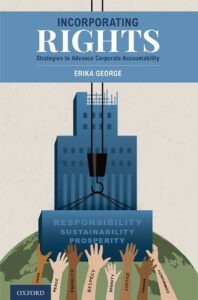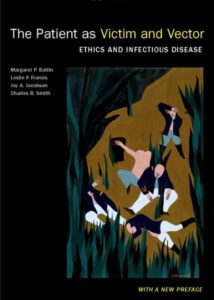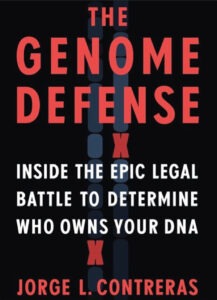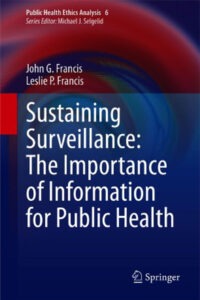The College of Law’s faculty members are renowned for their expertise in areas across the legal field—in fact, this year SJQ was ranked #36 nationally in faculty scholarly impact in the widely-cited Sisk-Leiter rankings. And it’s not all about law review articles—several of our faculty took deep dives into their areas of expertise this year with newly published books.
 Erika George
Erika George
Incorporating Rights: Strategies To Advance Corporate Accountability (Oxford University Press, 2021)
Professor Erika George’s book considers market-based strategies to bring business practices into alignment with the responsibility to respect human rights. It also explores how corporate social responsibility initiatives could close a global governance gap that currently places human rights at risk—and that puts commercial actors in the position of becoming complicit in human rights abuses. George examines corporate codes of conduct, sustainability reporting, and multi-stakeholder initiatives which could become the building blocks of a set of baseline standards for better business practices.
 Leslie P. Francis
Leslie P. Francis
with Margaret P. Battin, Jay A. Jacobson, And Charles B. Smith
The Patient As Victim And Vector: Ethics And Infectious Disease (Oxford University Press, 2021)
Professor Leslie Francis’s book, which she co-authored with infectious disease physicians, brought an entirely new perspective to bioethics when it was originally published in 2008. Oxford University Press determined that it should be reissued in light of the pandemic, with a new preface about COVID-19. The book argues that issues in health care ethics and law should be viewed from the assumption that we are all potential victims of disease and potential transmitters of disease to others. While COVID-19 has forcefully brought home how “we are all in this together,” issues from patient confidentiality to the just distribution of scarce resources for care must take into account the significance of our interconnectedness in an ongoing web of contagion.
 Amos N. Guiora
Amos N. Guiora
Armies Of Enablers: Survivor Stories Of Complicity And Betrayal In Sexual Assaults (American Bar Association, 2020)
This important work by Professor Amos Guiora highlights the stories of sexual assault survivors from USA Gymnastics, Michigan State University, Penn State University, The Ohio State University, and the Catholic Church, in each of those cases focusing on how institutions and individuals allowed the abuse to happen. Based on personal interviews with numerous survivors, Guiora shows that the victims’ expectation of protection and support from enablers or bystanders was rarely, if ever, met. He proposes legal, cultural and social measures aimed at the enabler from the survivor’s perspective.
 Jorge L. Contreras
Jorge L. Contreras
The Genome Defense: Inside the Epic Legal Battle to Determine Who Owns Your DNA (Workman Publishing, 2021)
In this riveting, behind-the-scenes courtroom drama, Professor Jorge Contreras tells the unlikely story of the ACLU’s challenge to gene patenting in America, in which a brilliant legal team battles corporate greed and government overreach for the fundamental right to control our genes. Told through the eyes of the lawyers, scientists, patients, judges and government officials who took part in the long legal battle, this is the definitive account of a history-making episode in American law and science.
 Leslie P. Francis
Leslie P. Francis
with John G. Francis
Sustaining Surveillance: The Importance of Information for Public Health (Springer, 2021)
This is a comprehensive account of the ethics and law of public health surveillance. Professor Leslie Francis and her co-author John Francis argue that surveillance is critically important not only to warn of potential outbreaks of deadly disease, but also to improve health care and to identify potentially unjust patterns of poor health. But to be ethically defensible, and politically acceptable, surveillance must be conducted to both protect individuals from discrimination and ensure that data are used in ways that are just. Big data, artificial intelligence, and evolving analytic techniques increasingly mean that data protection cannot rest on individual informed consent to data use. Instead, data uses must be transparent and subject to public oversight for surveillance to be sustained.
 Amos N. Guiora and Louisa M.A. Heiny
Amos N. Guiora and Louisa M.A. Heiny
Five Words That Changed America: Miranda V. Arizona And The Right To Remain Silent (Twelve Tables Press, 2020)
“You have the right to remain silent.” Most Americans know the warning, but few know the story behind it. Miranda v. Arizona is more than the source of this iconic phrase. It is a remarkable tale of devastating crimes, young victims, novice police officers, a serial sex offender, purse-snatchings, robberies, strategic moves, brilliant lawyering, bravery, misogyny, brutality, and poor choices. In the middle of it all were police departments struggling to change with the times, a United States Supreme Court in the throes of an individual rights revolution, and a nation navigating the turmoil of the 1960s. Based on first-person interviews and archival materials, “Five Words That Changed America” brings these stories to life and provides a birds-eye view of the case that changed America.